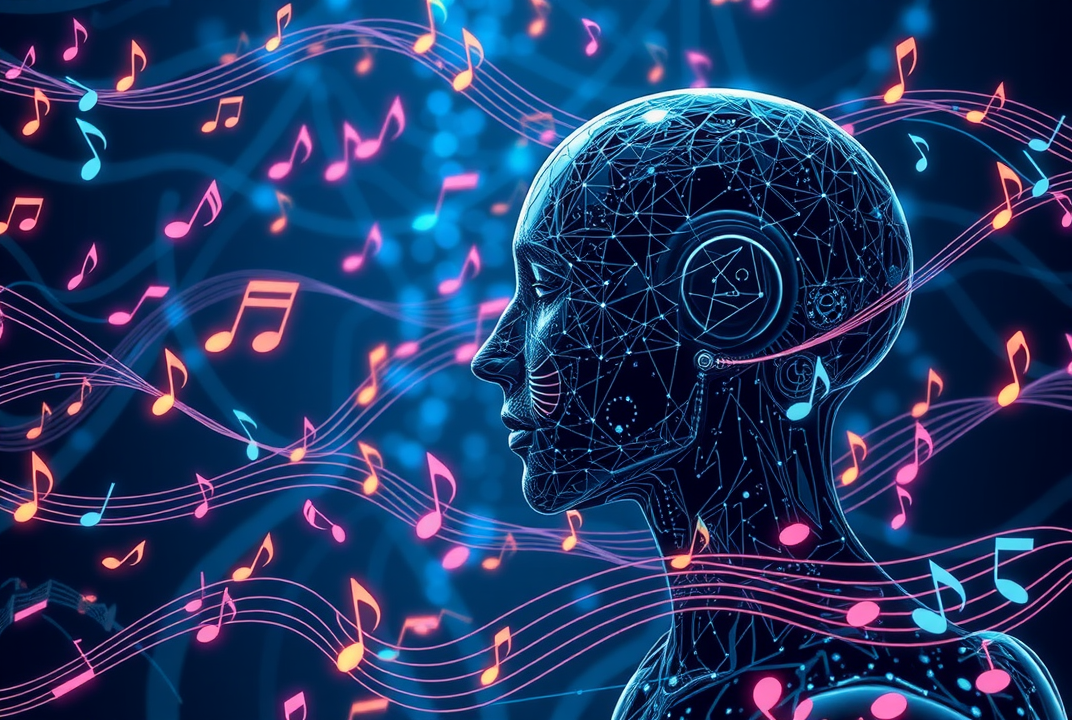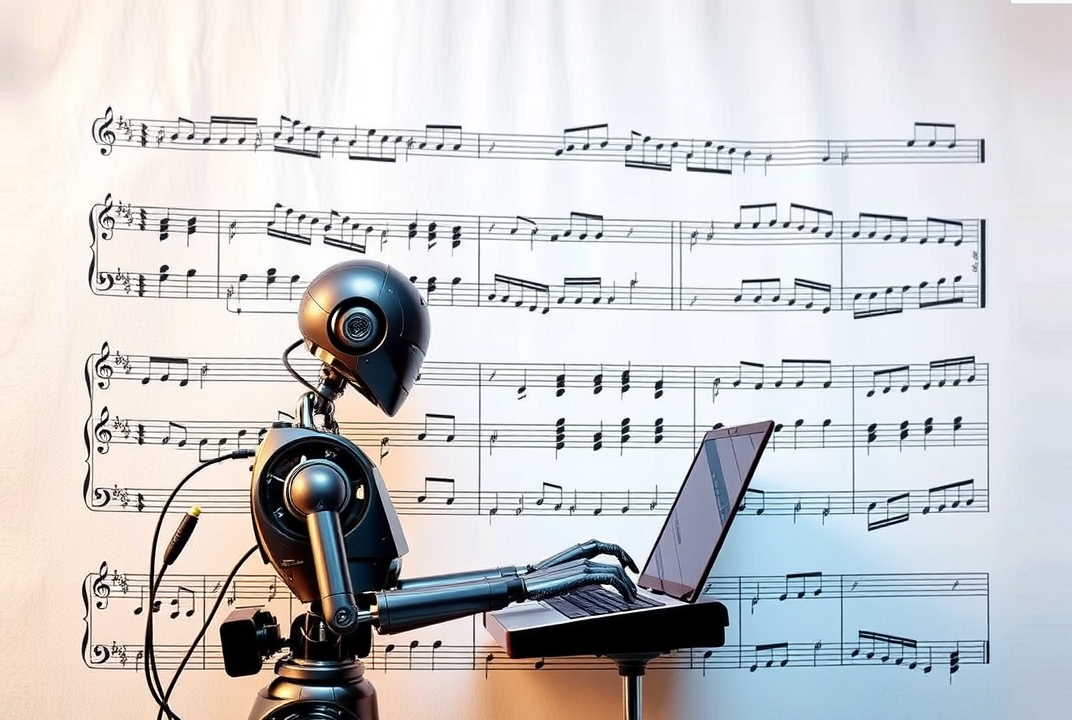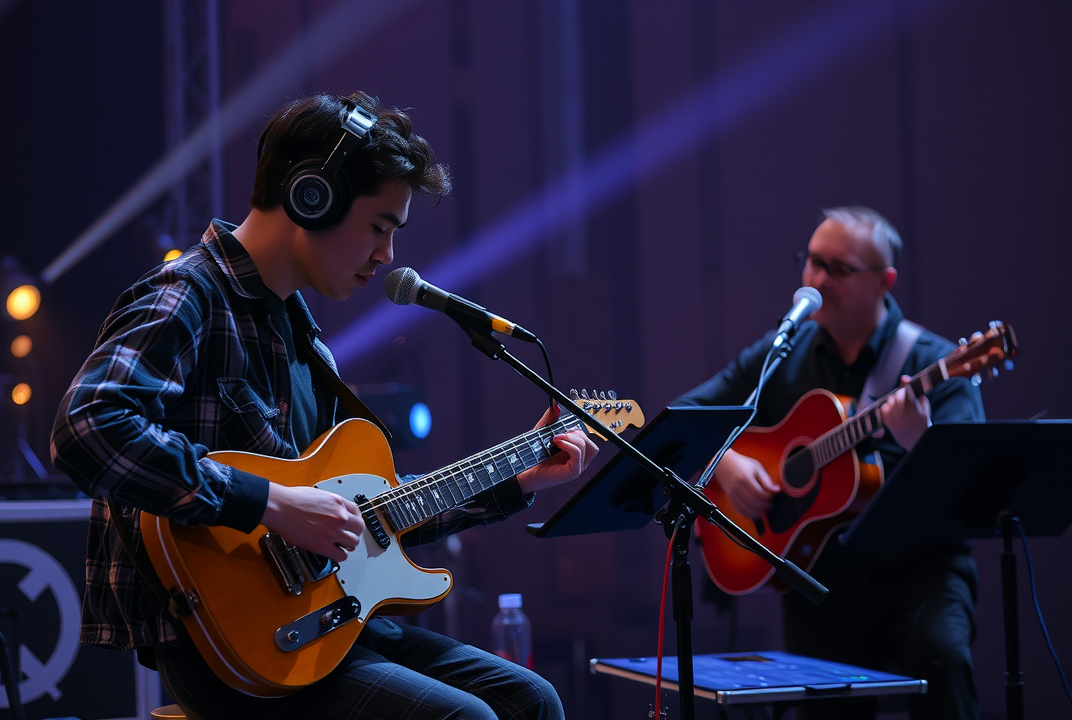AI in Music: Transforming Sound and Experience

Introduction
Imagine attending a concert where the music is partly composed by a non-human entity. Artificial Intelligence (AI) is carving a new path in the music industry, creating innovative sounds and transforming how we experience music. This innovation is not only pushing creative boundaries but also redefining musical production and performance.
In this article, we explore how AI is influencing music creation, the technology behind it, its impact on the industry, and what the future holds for this intriguing blend of technology and art.
The Advent of AI in Music
The integration of AI in music has opened up new possibilities for artists and producers. AI algorithms can now analyze vast amounts of musical data to create harmony, rhythms, and even entire compositions. This trend began with computing’s ability to process complex tasks and has expanded to areas traditionally reserved for human talent.
How AI Composes Music
AI music systems utilize machine learning to understand and replicate musical patterns. These systems, such as those developed by companies like OpenAI and Google, analyze existing music, learning styles and techniques to compose new material. Deep learning models, like neural networks, examine audio inputs to generate compositions that maintain the intricacies of human-created music.

The Role of AI Tools
Various AI tools are transforming how artists create music. Tools like AIVA, Amper Music, and SONY’s Flow Machines offer innovative platforms where users can experiment with music creation. These tools grant access to sophisticated features, allowing artists from different genres to collaborate with AI in unique ways.
AI also aids in mastering music. Platforms such as LANDR use AI to enhance and polish tracks, streamlining the process that typically requires skilled audio engineers.
Advantages of AI in Music Creation
-
Efficiency: AI can compose and produce music at a speed that is unattainable by humans, enabling artists to focus on performance and promotion.
-
Innovation: Artists can experiment with new sounds and styles, breaking traditional musical barriers.
-
Accessibility: AI has made music creation more accessible to those without a formal musical education, fostering diversity in music production.
Challenges and Ethical Considerations
AI in music introduces challenges, particularly concerning originality and copyright. As AI can replicate existing styles, questions arise about ownership and credit for AI-generated compositions.
-
Copyright Issues: Determining who owns a piece of music created by AI can be complex.
-
Loss of Human Touch: Some argue that AI might strip away the emotional connection inherent in music.
Impact on Industry Professionals
AI affects various stakeholders, from composers to sound engineers. Record labels may leverage AI to predict hits and tailor marketing strategies. Musicians might view AI as a collaborative tool that expands their creative potential.
Quote from an industry professional: "AI offers a partnership in music creation, enabling artists to explore new horizons," says James Turner, a music producer who has harnessed AI in his latest album.
Future Trends in AI Music
AI's role in music is likely to grow, with potential developments such as adaptive soundtracks for games, films, and personalized playlists for consumers. AI could enable entirely new genres or live performances that adjust dynamically to audience reactions.

Conclusion
AI has brought a transformative wave to the music industry, offering new opportunities and challenges. While AI-created music is in its infancy, the future promises more integration, potentially revolutionizing how music is created and consumed. For musicians and technology enthusiasts alike, keeping abreast of AI’s potential in music will be essential as these innovations continue to unfold.
Explore these advancements, and consider how they might change your listening experience or creative process. The fusion of AI and music will likely redefine artistry, pushing both creators and listeners into uncharted, exciting territories.